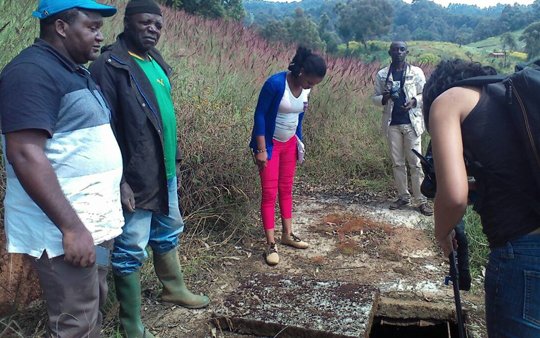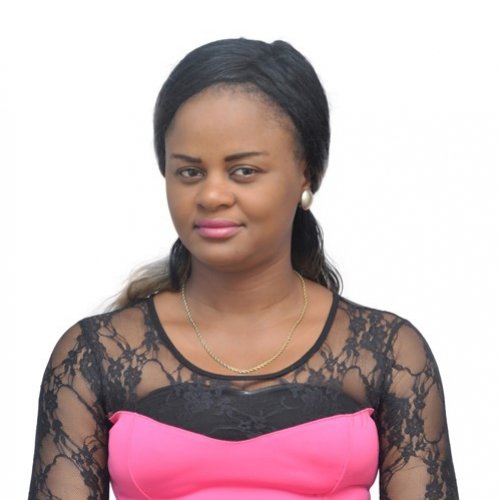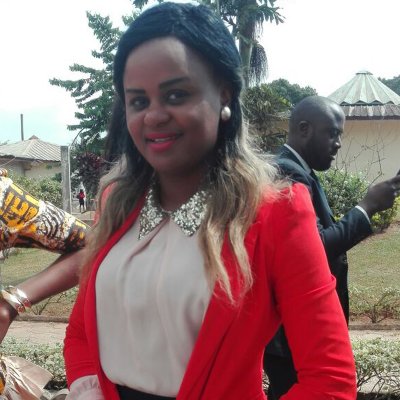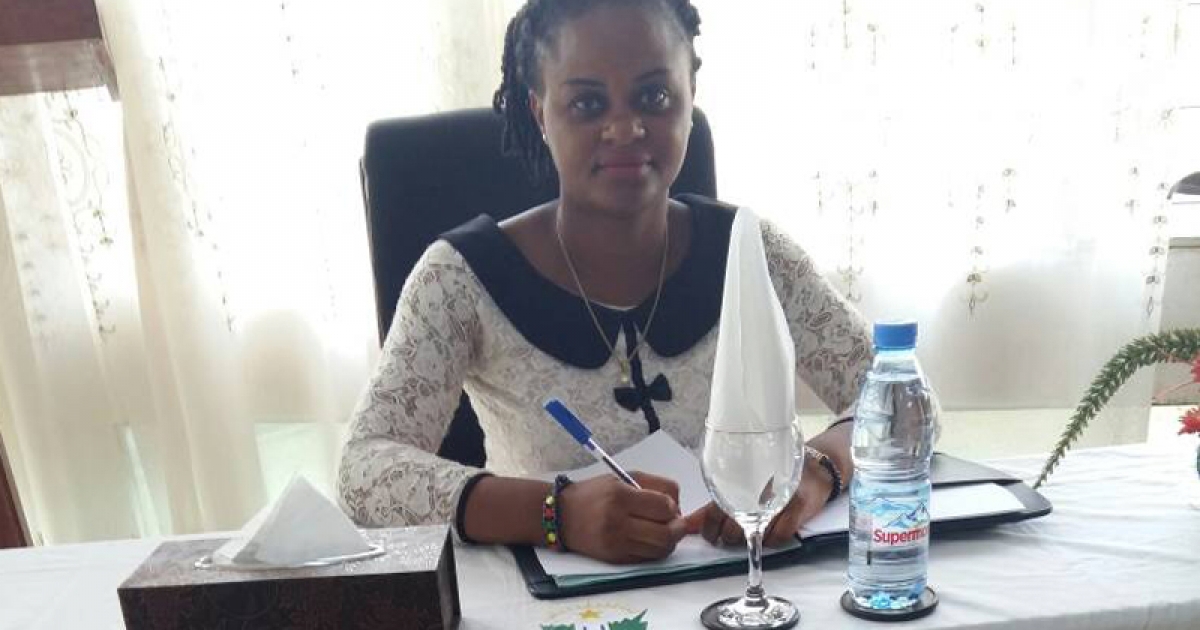“I Have Learnt to Remain Simple”
Achingale Queen is from Cameroon. She authors countless news articles on a wide variety of issues as a Journalist. Achingale worked as an intern with the United Nations Information Centre (UNIC) Yaoundé and has volunteered with an NGO, BLAS, in Africa. She is goal and results oriented, she has skills to manage complexities and can live with people of different cultures. She has working experience in environmental journalism as she was the acting Head of the Communication Division of an environmental NGO, ERuDeF. She is presently a PhD fellow. Achingale Queen Anyifuet's mentor is Attiya Mahmood.
Q: Tell us a few things about your country, and also your life's story!
A: Cameroon, situated at the Gulf of Guinea, is often referred to as Africa in miniature. She prides herself on her bilingualism (English and French) and rich cultural heritage, with some 250 local languages. This offers her citizens especially the youths, the unique opportunity for easy access to today’s increasingly interconnected and globalized world. Also, its rich and diverse land and water resources and an active youth population are ideals
in achieving the country’s vision of emergence by 2035. No doubts, the youths today are fast embracing new technological revolutions, steadily becoming more entrepreneurial and gradually taking the centre stage in the development of their communities in particular and the country as a whole.
My greatest passion in life has always been to ensure people around me live in the best possible way. This passion shaped my educational career both at the undergraduate and Master’s levels. As a Communication officer with some Non-Governmental Organisations like Bring Light And Smile (BLAS) in Africa, I advocated for policy changes so that the peoples’ needs are best represented and catered for. When I was given the opportunity to work with one of Cameroon’s leading environment and conservation organisations, Environment and Rural Development Foundation (ERuDeF), I actively took part in key environmental projects as well as livelihood projects. Through these projects, we ensured that the rural poor deceased from anthropogenic activities which were not environmentally friendly and engaged in other livelihood activities so as to sustainably use their natural resources. By so doing, the beneficiary communities became key actors in their own development. Recently, I have developed an interest in the rights of a child and I am currently carrying out an extensive research of the challenges of a child’s right to health and education in some local communities. With information from the field, I am certain to make meaningful changes and support government’s strife in salvaging child health problems in my country, which remains a major preoccupation.
Q: What is your view of the world as it is today? And how do you define the concept of a better world?
A: Today, I think we live in a paradoxical world. The fast-growing technological evolution is supposed to offer best solutions in making the world more peaceful, safer for human habitation and a place where dreams are best realised with the least cost incurred. Unfortunately, what we witness today is just a handful of individuals, organisations, corporations and nations using the technological advantage to realise their selfish interests at the detriment of the common man. This accounts for the present turmoil at the international scene and the numerous terrorist attacks.
To me, a better world is that ideal world where individuals, organizations, corporations and nations would put aside their self-interests and work for the good of all and sundry. A world wherein every setting that we find ourselves, all lives matter as we identify our differences, respect such differences and reconcile them for the good of all.
to take up challenges. If all these issues are readdressed, both by the government and the youths themselves, then, the number of youths migrating for ‘better lives’ will reduce drastically and both actors will play an active role in making our society a better place.
Q: As a young individual what are a few of the hurdles that you had to overcome up until today?
A: One of my greatest challenges in life has been to take the first step in anything. This attitude has made me shun so many opportunities without any trial. I always limit myself and dreams with the belief that I am not capable so it is not worth the trouble to venture into something which failure is certainly the outcome. As such, I have always been contented in my "comfort zone". But of recent, I have been venturing into some challenging opportunities telling myself “yes I can”.
Q: Why is the role of a mentor important for you?
A: I think it is very important to have a mentor at this stage in my life because I need to stay on track in my dreams as I have flitted about in my decision of what to do and what would be of interest to me. Thus, I am in dire need of counselling and guidance so as to stay focus. It is also important because I would gain inspiration from the success story of my mentor so as to realise my dreams within a shorter time frame and through the best possible means. This would help me regain my self-esteem, find my true potentials and exploit them in the best possible way. A mentor will thus help me build a successful career in order to help me contribute fuller to the development of my country.
Q: Do you have a lesson that life has taught you and you would like to share?
A: I have learnt to remain simple because even in my simplicity I will still gain admiration. As a teenager, having all I wanted and needed like my friends did, was difficult given that I come from an average family. One of my siblings kept reminding me to avoid negative competitions with my friends and to be contented with the little I had. She often said, “Be simple Queen, because many will like you for who you are”. This greatly shaped my life especially my social life as it gave me the courage to stay strong in the face of most challenges plaguing my society at that time and even till date. I have been able to pass on this lesson to many and would continue to do so in order to replicate such impact in the lives of those around me.

Q: Name a project, a foundation or a person in your country that you think is doing great work in helping improve other people's lives!
A: Among the people or institutions making significant changes in my community, the Environment and Rural Development Foundation (ERuDeF) is standing tallest in its efforts in changing lives and putting smiles on peoples’ faces. It does not only serve as an employer to more than 70 youths, it's saving our depleted landscape, conserving already endangered wildlife and empowering rural communities with alternative sustainable income generating activities among many others.
Q: Share with us a phrase, a poem or a story that you love or you find interesting!
A: “Those who fail in life are those who didn’t realise how close they were to succeed when they gave up”. As such, we should not give up thinking it is over. Only when we give up, then it becomes over.
Q: Tell us one thing that you have learned from your mentor.
A: Among the things I have learnt from Mrs. Attiya Mahmood, one thing that stroke me most was that with a well-defined goal and with good counselling on which path to take, any dream is attainable. With her dream and with counselling from a friend and her father, she was able to build a very successful career.




